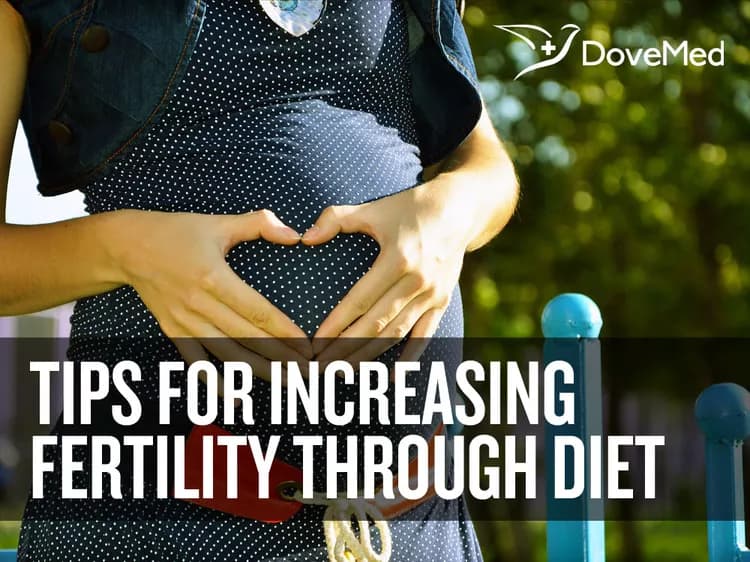Many young couples who are settled in their new homes may have plans on conceiving a child. If you are like most couples who are trying to have a baby, you are attempting to get pregnant sooner rather than later to optimize your chances.
Having sexual intercourse very close to a woman’s ovulation helps drastically improve the chances of conceiving a child. In addition, through your diet, there are ways to help increase your chances of getting pregnant.
According to the American Pregnancy Association, women should plan three months to a year ahead for dietary changes to have an effect on their fertility. However, if you are already into the process of trying to conceive a baby, then these tips should still help. Here are some ways you can improve your diet to increase your chances of getting pregnant.
Limit alcohol intake:
A serving of wine or beer usually will not hurt your chances of conceiving a baby, as long as you are not already pregnant. Drinking alcohol while pregnant can harm a developing fetus. The American Society for Reproductive Medicine recommends that if you do drink alcohol, have no more than two drinks a day, if you are trying to get pregnant. Swedish researchers have found that women who drank two alcoholic beverages per day decreased their fertility rate by approximately 60%.
Cut down on caffeine:
Cutting back on caffeine may be hard for many people. Going cold turkey on caffeine may cause withdrawal symptoms like headaches. Hence, if you decide to stop using caffeine entirely, it is best to start by cutting down gradually.
Though there are mixed reviews on the effects of caffeine on women trying to conceive, decreasing your intake will not hurt your chances. Most researchers and physicians agree that consuming moderate amounts of caffeine (less than 300 milligrams per day or about two 8-ounce cups of coffee) will not disrupt your chances of getting pregnant. The American Pregnancy Association says that caffeine can impede your body's ability to absorb iron and calcium. Slowly replace more of the caffeinated brew in your cup with decaf, until you have weaned yourself.
Load up on iron:
As mentioned before, caffeine can slow your body’s ability to absorb iron. Women who are trying to conceive or are pregnant should take iron multivitamin supplements because a growing baby will use up your iron stores. This puts many women at risk for postpartum anemia, a condition where new moms have very reduced red blood cell levels and experience fatigue.
Eat (safe) fish:
Fish have essential fatty acids called omega-3 fatty acids, which are important for a baby’s brain and eye development. Omega-3 fatty acids can lower your risk of preterm birth, reduce your chance of preeclampsia, and help fight depression. The U.S. Food and Drug Administration (FDA) says that women trying to conceive can eat up to 12 ounces each week of (low-mercury) seafood such as salmon, canned light tuna, shrimp, or catfish.
The man’s diet matters:
The male counterpart needs to be also aware of his food habits. A healthy male diet can aid in healthy sperm development. Men should change their diet and eat more foods with zinc and selenium one to two months in advance of trying to conceive.
Additional Resources:
American Society for Reproductive Medicine and Society for Reproductive Endocrinology and Infertility, “Optimizing natural fertility,” Fertility and Sterility, 100(2013):631-637, accessed September 3 2014
CHIU, C. C., HUANG, S. Y., SHEN, W. W., & SU, K. P. (2003). Omega-3 fatty acids for depression in pregnancy. American journal of Psychiatry, 160(2), 385-385.
Eggert, J., Theobald, H., & Engfeldt, P. (2004). Effects of alcohol consumption on female fertility during an 18-year period. Fertility and sterility, 81(2), 379-383.
Fish: What Pregnant Women and Parents Should Know. (n.d.). Retrieved January 15, 2015, from http://www.fda.gov/downloads/Food/FoodborneIllnessContaminants/Metals/UCM400358.pdf
Fenton, V., Cavill, I., & Fisher, J. (1977). Iron stores in pregnancy. British journal of haematology, 37(1), 145-149.
Foods to Avoid During Pregnancy - American Pregnancy Association. (2012, April 26). Retrieved January 23, 2015, from http://americanpregnancy.org/pregnancy-health/foods-to-avoid-during-pregnancy/
McGregor, J. A., Allen, K. G., Harris, M. A., Reece, M., Wheeler, M., French, J. I., & Morrison, J. (2001). The Omega-3 Story:: Nutritional Prevention of Preterm Birth and Other Adverse Pregnancy Outcomes. Obstetrical & gynecological survey, 56(5), S1-S13.
Su, K. P., Huang, S. Y., Chiu, T. H., Huang, K. C., Huang, C. L., Chang, H. C., & Pariante, C. M. (2008). Omega-3 fatty acids for major depressive disorder during pregnancy: results from a randomized, double-blind, placebo-controlled trial. Journal of Clinical Psychiatry, 69(4), 644.
Williams, M. A., Zingheim, R. W., King, I. B., & Zebelman, A. M. (1995). Omega-3 fatty acids in maternal erythrocytes and risk of preeclampsia.Epidemiology, 232-237.
Helpful Peer-Reviewed Medical Articles:
Edlin, G., & Golanty, E. (2012). Health and wellness. Jones & Bartlett Publishers.
Lewis, R. (2008). The infertility cure: The ancient Chinese wellness program for getting pregnant and having healthy babies. Little, Brown.
Benaglia, L., Bermejo, A., Somigliana, E., Scarduelli, C., Ragni, G., Fedele, L., & Garcia-Velasco, J. A. (2012). Pregnancy outcome in women with endometriomas achieving pregnancy through IVF. Human reproduction, 27(6), 1663-1667.
Related Articles
Test Your Knowledge
Asked by users
Related Centers
Related Specialties
Related Physicians
Related Procedures
Related Resources
Join DoveHubs
and connect with fellow professionals


0 Comments
Please log in to post a comment.